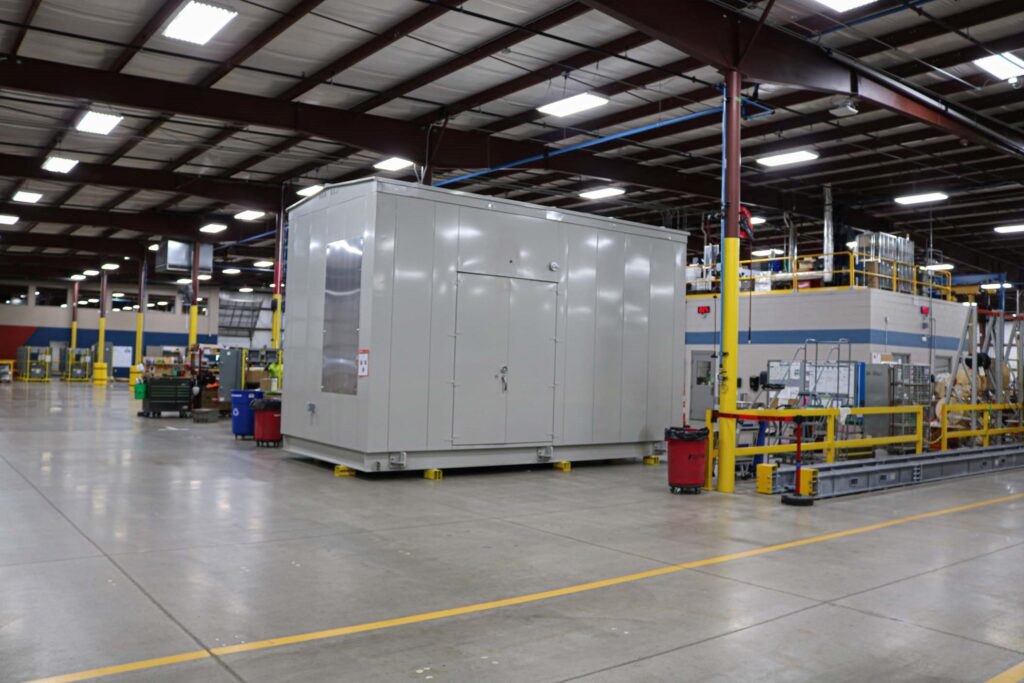November 16, 2023 Nolan Kephart
Why Construction Manufacturing Works
As our FTI organization continues to search for new and innovative ways to revolutionize the electrical construction industry, one effective process that has emerged has been shifting work to a manufacturing or integrator environment. Construction typically involves the on-site assembly or erection of buildings and infrastructure, while manufacturing refers to the process of making products in a factory or workshop. However, in the context of electrical construction, manufacturing can play a significant role through the production of prefabricated components or modules that are later integrated into the project site.
At Excellerate, we’ve been integrating manufacturing processes into electrical construction work for more than a decade. There are multiple efficiencies that come from shifting work offsite to a controlled manufacturing setting:
- Efficiency and Precision: Manufacturing allows for high-quantity production of standardized components with high precision. These components can then be transported to construction sites for assembly, reducing the time and labor required on-site.
- Cost Effectiveness: High-volume production in a controlled factory environment can lead to cost savings. This is because manufacturing allows for economies of scale, streamlined processes and reduced waste.
- Quality Control: Our Excellerate manufacturing processes have stringent quality control measures in place. This ensures that the components produced meet specific standards and specifications. As a result, the overall quality of the construction project can be enhanced.
- Time Savings: Prefabrication and manufacturing of construction components can significantly reduce the time required for on-site construction. This is particularly important in projects with tight schedules or where weather conditions may affect on-site work. Manufacturing of components can also be accomplished simultaneously with other construction activities occurring on the project site.
- Safety: Manufacturing in a controlled environment can improve safety conditions for workers. It reduces exposure to on-site hazards and adverse weather conditions, and provides ready access to the tools and technologies needed for the components.
- Resource Optimization: Manufacturing allows for better resource management by optimizing material usage and reducing waste. This is environmentally friendly and can contribute to sustainable construction practices.
Construction and manufacturing work together to create more efficient, cost-effective and precise processes in building projects. The integration of manufacturing principles into construction practices can lead to improved quality, safety and overall project success. Please contact us to learn more about implementing Excellerate’s electrical construction manufacturing processes on your next project.
Interested in learning more? Check out our other articles and subscribe to be the first to know about future Excellerate blog articles.

 Why Construction Manufacturing Works
Why Construction Manufacturing Works

